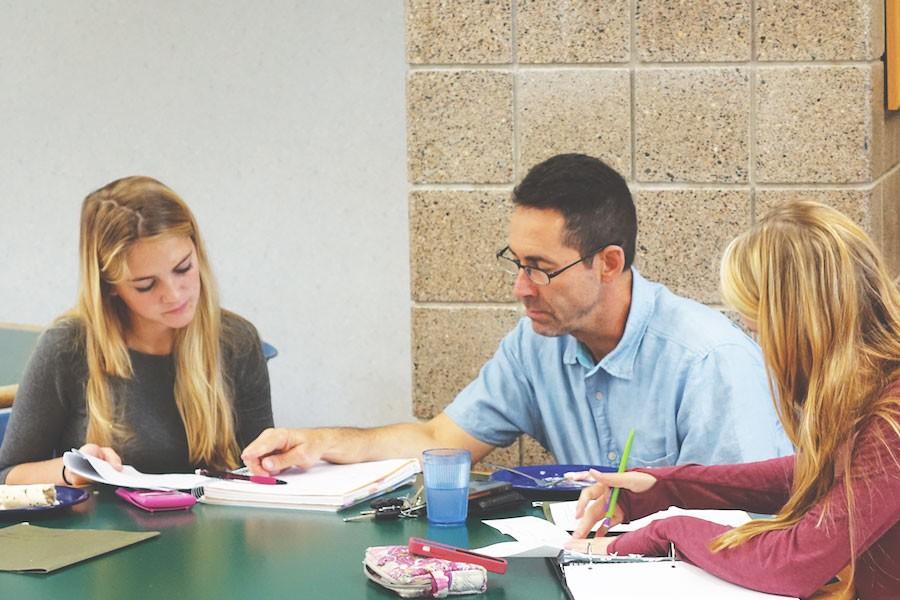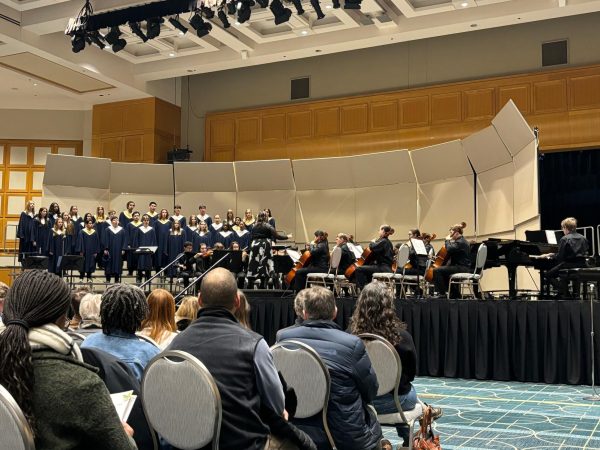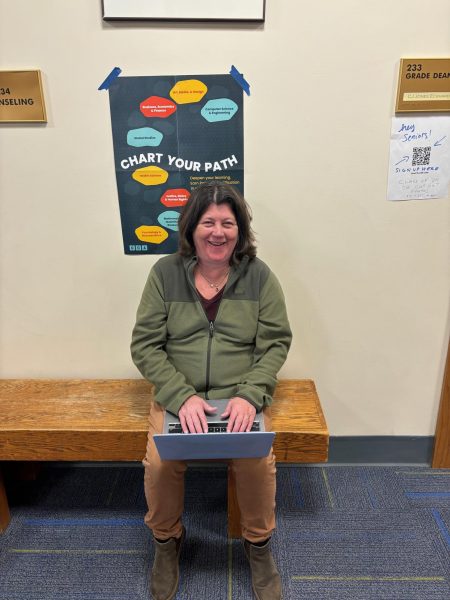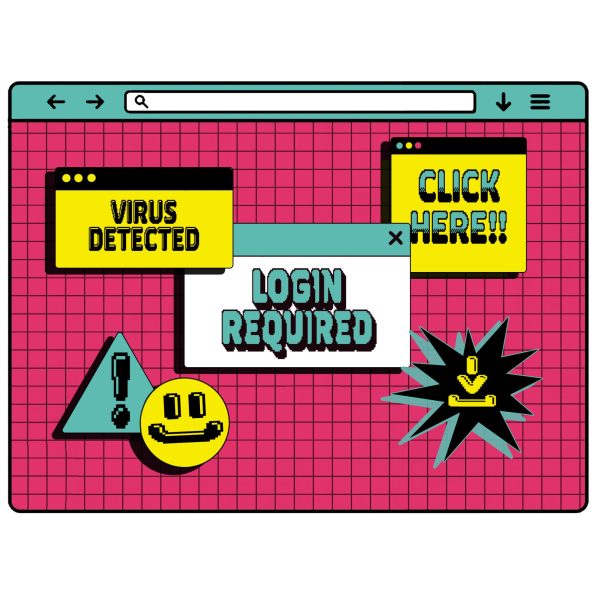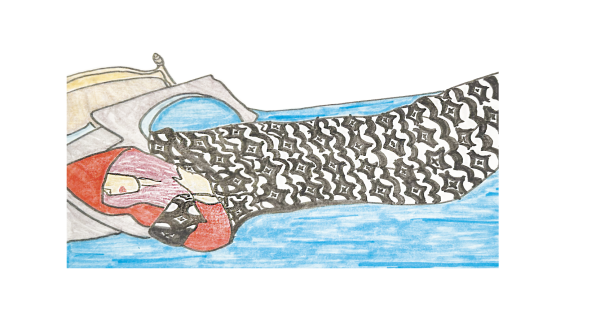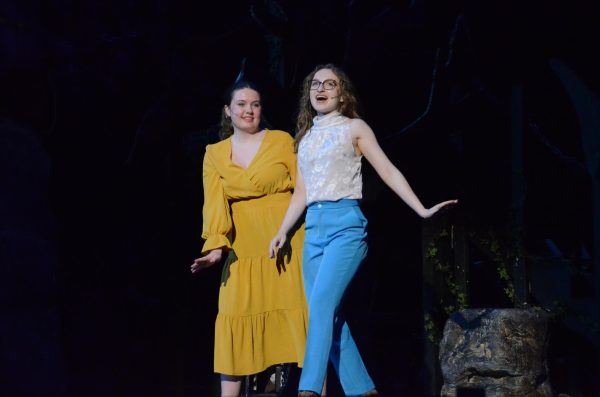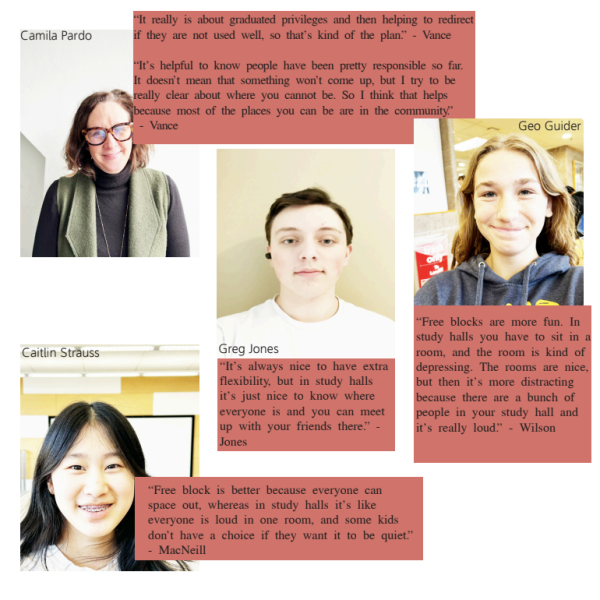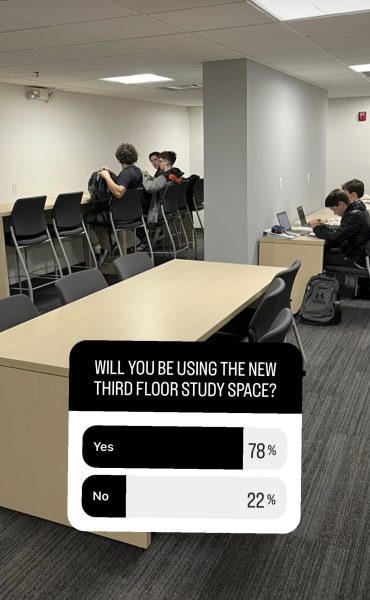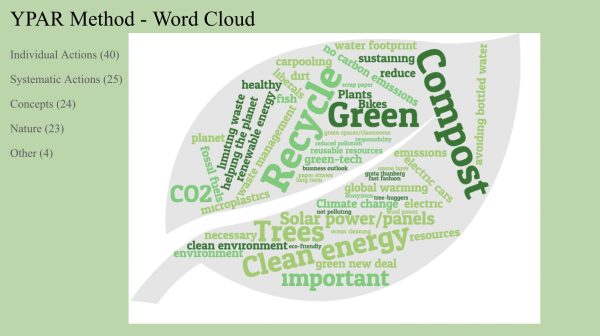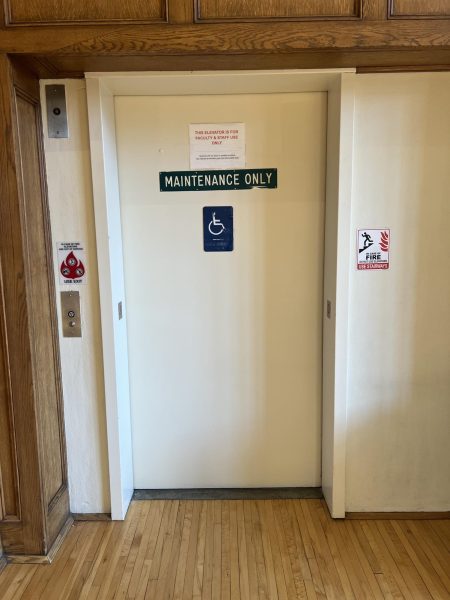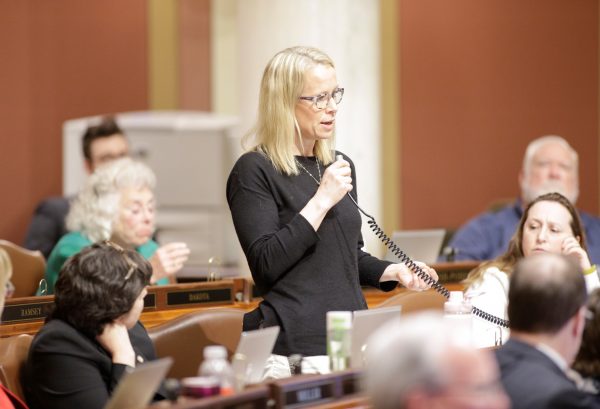Code Switching
How we tune our identities to others’ perception of us
Code switching, defined as the practice of using different varieties of language in conversation, is usually brought out when talking to teachers. Callie Abraham ’17, Savannah Swanson ’17 and Steve Kaback converse about Physics during lunch.
“I can’t tell people my true sexual orientation because I’m too scared of judgement.”
“I try to “act white” but still embrace the fact that I am a person of color because I do not want to be seen as less than all of the white people in school.”
“I feel like I can’t say my conservative opinions because I’ll get persecuted.”
“Since I came here from a different country, I think I tried very hard to fit in to the student body by changing the way I dress, talk, and even choosing a meal when hanging out with friends.”
These statements are not just elaborated examples of what some students feel they must conceal in order to avoid being treated differently; they are real concerns voiced from students at our school. These statements were submitted through a recent survey administered to the student body. Of the 230 participants, 95% of students recognized that their behavior changes depending on the person that they’re interacting with. Without question, there’s a trend of redefining who we are in the presence of others. Code-switching, a term that has made its way from the dark halls of academia to the everyday lives of students, explains this phenomenon.
“[When] talking to my friends I’ll definitely be more casual. The wording of it is less important to me than if I were to talk to teachers. I phrase my sentences more clearly especially talking to an English teacher versus a math teacher,” says Stephanie Makredes ‘17.
For Makredes, code-switching is inevitable, since our identities shift according to external perception. Indeed, your parents probably don’t view you through the eyes of your teacher. “It’s just something that happens. We have different relationships with different people, so I don’t think it’s something that we can avoid.” Code-switching often goes under our radar, as Makredes says, “It’s just something that happens.” It has been internalized that we must shift how we speak according to whom we’re talking. Be it through social expectations or personal experiences, we’ve learned how to tune ourselves according to what people want to hear.
The social implications of code-switching are far-reaching. Gender, for instance, can play a critical role. Makredes reveals that, “I am one of three girls in my math class and it’s definitely [a situation] that I try not to be in. Personally, I don’t like being in classes with a smaller girl to boy ratio. I talk a lot less this year than I did last year (where I had more girls in my class), so it affects my participation a lot.” Makredes is in the gender minority in her math class, which affects her code-switching.
Code-switching can also cause a disconnect between one’s true and constructed self. Emma Wellik ‘16 feels as though “there isn’t a very distinct line between code-switching and being a disingenuous person beyond expressing blatantly different beliefs or just being unrecognizably different.” She elaborated upon this idea of insincerity, adding that, “Code-switching is about wanting to appeal to different people versus wanting to be yourself. [It] comes out of a place of insecurity.” Indeed, for those in danger of being ostracized for whatever reason, the need to fit-in is essential.
Like Makredes, Wellik sees environment being a large influence upon behavior. “[Blake is] such a white cis male straight driven school, that if you don’t fall under those categories, especially if you don’t fall into a lot of them, you’re definitely going to act differently when you’re in this environment than when you’re out of it. It’s uncomfortable to be yourself in certain environments, or to be a certain aspect of yourself 100%.”
Zeam Porter ‘16 struggles with his identity through a racialized lens. “I code-switch every single day, I am apart of Blake,” he reflected. “I feel like my racial and ethnic identity is otherized just because of our historical trauma. It really sucks that I feel the need to code-switch, but I feel like if I didn’t, people would get caught up in my ebonics, people would get caught up in the way I spoke, and not listen to the meaning and intention behind my vernacular.” Consequently, language stops being just a means of communication and becomes a defense mechanism. It’s a way to have your voice heard when it’d otherwise be silenced.
Porter views this tactic as necessary, explaining that, “You need to code-switch in order to protect yourself from ignorance. That’s not putting the blame on the people in the community who are ignorant…they just don’t know. I find myself…trying to be more homogenous.”
In some ways, our school functions as a microcosm of society. Within it, we see a variety of identities and the changes made to accommodate them. Whether it’s altering some part of yourself in front of a teacher or peer, code-switching has left an indelible mark on Blake.
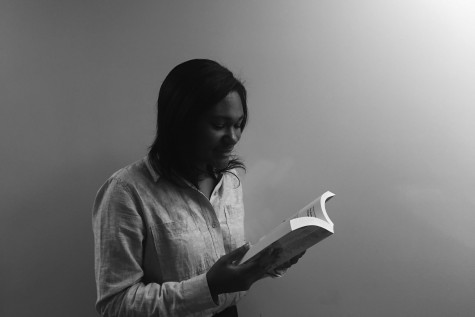
Alexis was a first year editor for Spectrum in her sophomore year, though she is also a junior reporter for the newspaper ThreeSixty. She primarily work...
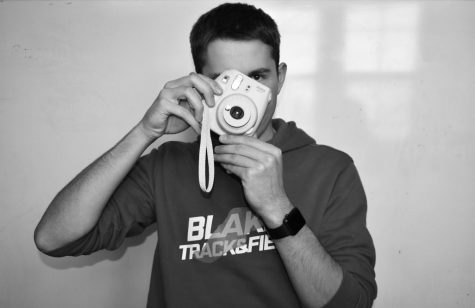
I have been a contributing writer since sophomore year, and I was the Sci-Tech and Health editor the first semester of my Senior year. I am now the multimedia...

